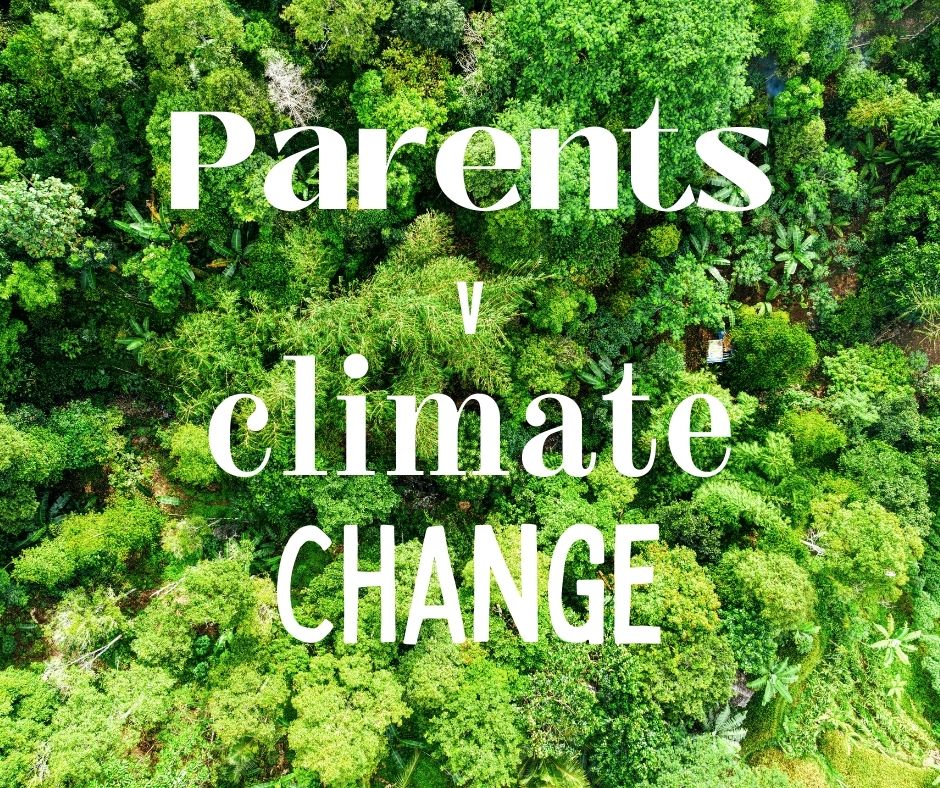Uncategorized
Parents v Climate Change

How does climate change affect us? What can you do about the problem of greenhouse gases? What exactly causes climate change? Is it even an issue? And if it is what are the facts and how can we stop it? We break it down and answer these questions in this post.
For some, it is the premiere issues of the day a question so far beyond doubt it requires nothing short of our full and immediate attention. Yet for others this position is alarmist and any such action can be delayed.
So…
What is climate change?
Climate change is defined as the ‘long-term change in the average weather patterns that have come to define Earth’s local, regional and global climates.’
As such a changing climate is a natural process of a dynamic universe.
So, what’s the issue?
Well, recently the earth has been getting warmer due to the build-up of very specific atmospheric gases, gases that trap heat leading to the infamous ‘greenhouse effect’.
Fossil Fuels, Greenhouse Gases and Climate Change
From the dawn of man but particularly since the industrial revolution and the mass production of ‘things’, the energy to shape our world has come from fossil fuels: gas, coal and oil etc. And the energy held in these fuels is released through burning.
Briefly, as these fuels are burnt, they heat water, this creates steam, which drives turbines, that ultimately generates electricity…that lights our homes and powers industry.
However, a critical by-product of burning fossil fuels are greenhouse gases and the current poster child for greenhouse gases is C02 carbon dioxide.
Carbon Dioxide
Well, here it is, the much-maligned C02 molecule, a carbon molecule attached to two oxygen molecules.
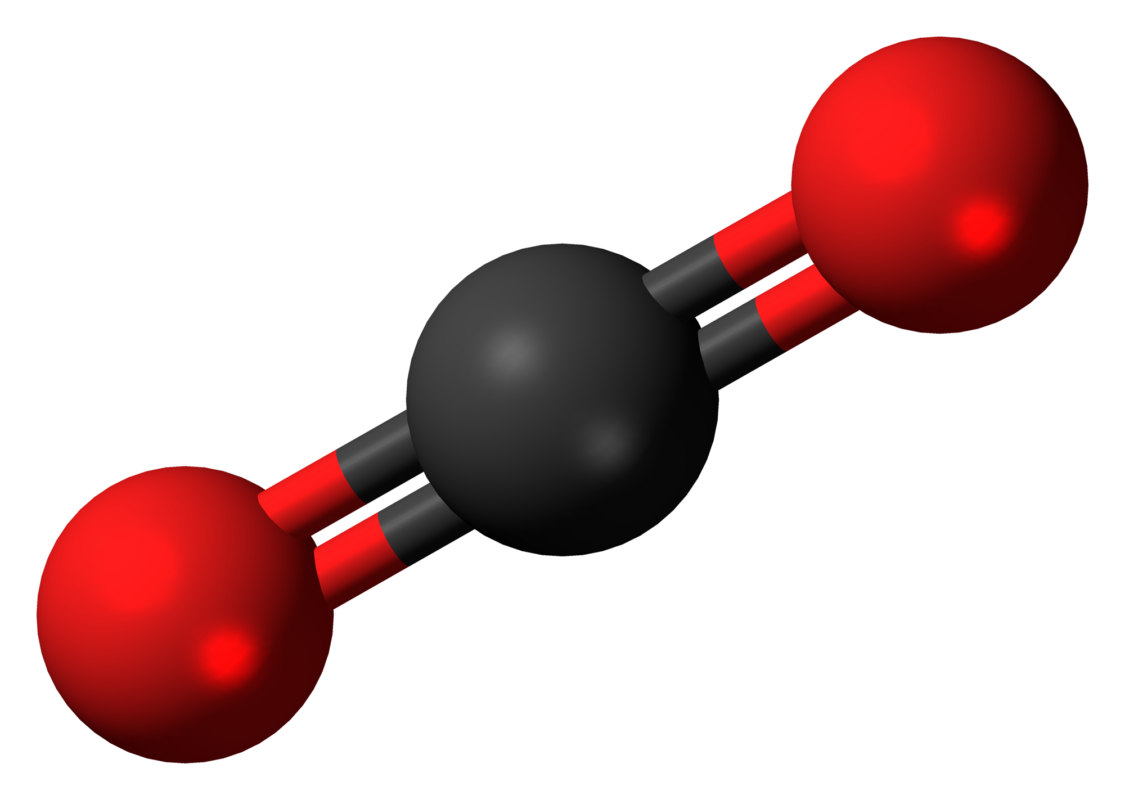
Ordinarily, making up about 1% of the atmosphere, C02 is a naturally occurring and quite useful gas.
Naturally occurring C02 is produced through…
- The decomposition of plant life
- The digestion processes
- Geological processes i.e., volcanoes and geysers.
And despite it’s bad press C02 is critical to life in 2 fundamental ways:-
Firstly in the process of photosynthesis. Briefly – grasses use the energy in sunlight, to turn C02 which it absorbs from the atmosphere, into the food (sugars) it needs it to grow…plant life and harvest. Very usefully the waste material from this process is oxygen.
Later in the story, grasses are eaten by cows and sheep herbivores, which in turn are eaten by carnivores, (unless you’re vegetarian and vegan).
Secondly C02 helps to maintain the average temperature of the earth by its natural capacity to absorb light heat which would otherwise dissipate into space. C02 therefore helps the earth achieve relatively stable temperatures within which life can flourish.
Methane
Methane (CH4) like C02 and is another naturally occurring gas however it is far, (far) more potent as a greenhouse gas and like C02 methane helps the earth maintain a mean temperature without which earth would freeze.
Methane is produced through…
- Swamps, marshes and wetlands
- The digestive process
- Decomposing cow poop
- Decay from landfill sites etc.
In relation to these gases, our current age, the Anthropocene Epoch, (the age and impact of man on earth), has seen significant increases the in the amount of these gases in the earths atmosphere.
Climate Change and Anthropocene Epoch?
Thanks to the experiments of William Herschel (1738 – 1822) we understand, light from the invisible end of this spectrum carries with it, heat…substantial enough to burn.
Think of ultraviolet light on the skin and sunburn or infrared lights used in patio heaters.
Today, the increased presence of carbon dioxide and methane in our atmosphere, due to industrialisation, is trapping infra-red light coming from the sun, that would ordinarily radiate safely back into space. The result…a dangerously warming planet.
Critically, whilst more of these greenhouse gases are being produced we have simultaneously seen the loss of green spaces that would naturally check the rise of greenhouse gases.
This of course is not incidental in fact the relationship is direct.
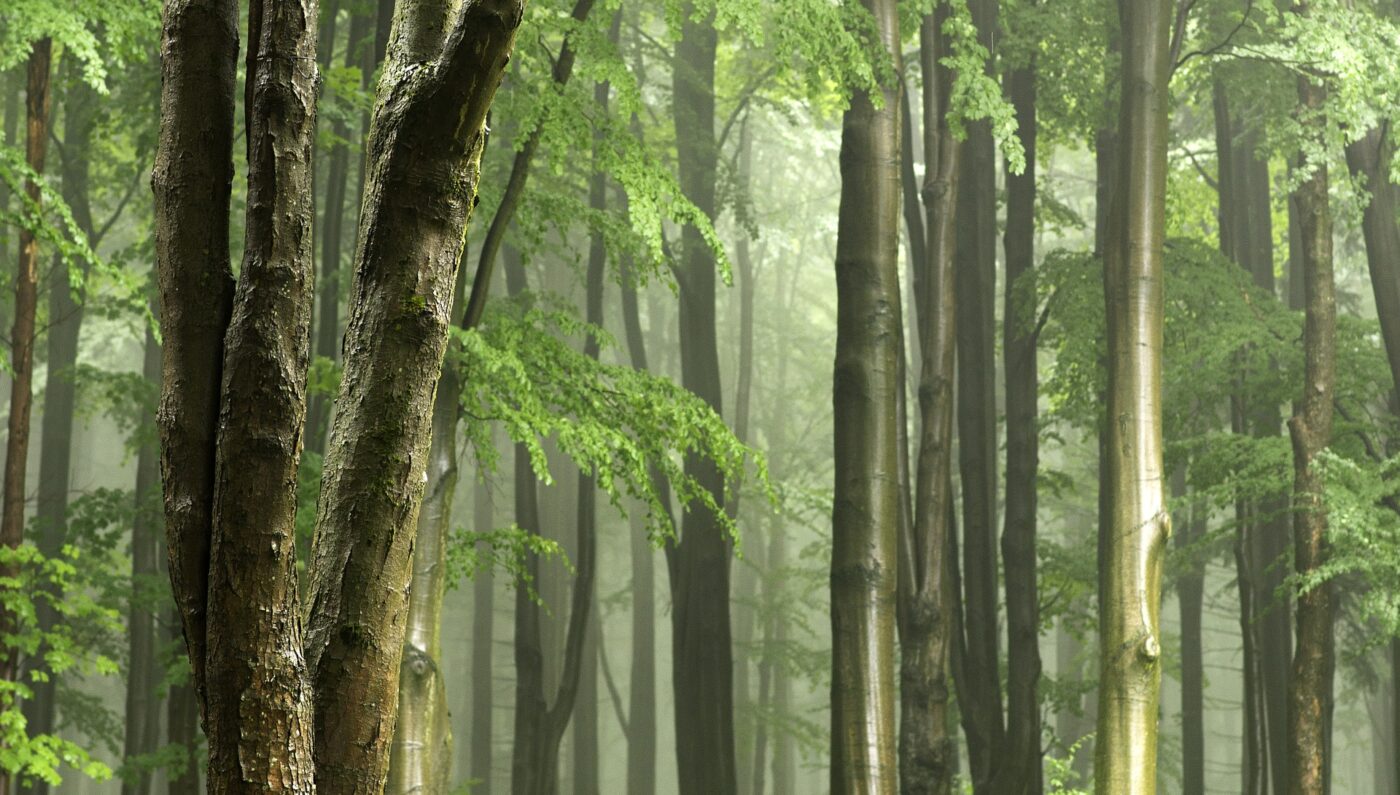
Deforestation
Deforestation occurs as the result of human activity: agriculture, logging, living space, industry and mining. And as these green areas shrink the earths ability to process and eliminate greenhouse gases becomes severely prejudiced.
Here’s some incredible numbers…
- It takes 60 to 100 millions years for rainforests to evolve
- 25% of our medicines today come from rainforest plants
- 20% of our oxygen is produced in the Amazon
- 60% of the earth was once covered in forests. Now there is less than 10%
- Every minute forests the size of 20 football fields are cut down
Oceans
The earth is 70% water (roughly) and needless to say just how fundamental this element is to life on earth.
For instance, one of the key protective properties of water, is its amazing capacity to absorb heat.
Critically, as the Earth’s temperature has increased, the oceans have played a crucial role in absorbing much of this extra heat but as this continues oceanic flora and sea life is jeopardised and thermal expansion threaten coastal communities.
Landfill
The waste we generate from ‘things’ we no longer want or need i.e. wooden objects, plastics, paper and cardboard etc, are deposited in landfill sites (more in part II).
Over time as ‘things’ decay they produce excess amounts of dissolved methane and carbon dioxide, that without effective management, seeps into and poisons the water table.
Additionally the placement of landfill sites has been shown to significantly disrupt the local ecology and wildlife.

Climate Change and The Future
The UN Secretary-General United Nations Secretary-General António Guterres stated, ‘The climate is changing, and the impacts are already too costly for people and the planet.’
Whilst the race is on to find sustainable alternative to fossil fuels the question is, will we be able to find and transition in time?
Developing Nations
There are now many newly developing economies, each demanding their sovereign right to develop and use their share of the earth’s resources and going forward these countries that will significantly accelerate greenhouse warming.
The Military
Wars are not good for the planet and here it is anyone’s guess how big the carbon footprint of the military and the security services might be but it won’t be slight.
Climate Change – it’s not easy being green
And maybe not worth while.
We are invited to go green and recycle, the chief means by which; parents, individuals and households, can contribute to this most fundamental of issues.
However, Beth Porter author of, ‘Reduce, Reuse, Reimagine: Sorting Out The Recycling System,’ states, ‘We won’t recycle our way out of this crisis.’
You didn’t cause climate change and you alone are not responsible for reversing the damage to the planet.
Such commentators suggest, all of our combined individual efforts might not be enough to rebalance the greenhouse gas output of big business over the last 2.5 centuries. The process might simply have gone too far.
So how did we get here?
We could at this point, point to capitalism and capitalist, for it is clear capital has consistently won out over e.g., human rights and environmental issues.
This however should not be read as a critique of capitalism far from it. Outside of people, there isn’t that much wrong with the principle of trade.
Climate Change and Capitalism
Capitalism comes in many distinct shades and therefore quiet nuanced. As is democracy which can be defined as representative or liberal, while expressing elements of both.
One version of capitalism, is ‘conscious’ capitalism as opposed to say free market capitalism.
Here, the prefix conscious acts as an important modifier, effectively limiting any expression of capitalism in its raw free state. This is achieved through consciously weighing: social, political and economic decision making, on the side of life.
For in its pure form capitalism exists for nothing but itself. It does not concern itself with: human or animal welfare, environmental pollution, famine or the wealth divide.
Manufactured Consumerism
An important element in understanding how capitalism works is consumer’ism’, which describes a rapacious appetite for things.
Economically, you and I, are deemed ‘consumers’ which if examined, is more of a (not so) subtle suggestion, than a description. For our almost catastrophic addiction to buying has been very carefully cultivated by manipulating the psychology of our reward centres.
At the same time both educationally and socially, depth of thought has been replaced by something much more shallow while paralleled by a rise in individualism. And it this process that has seduced and reduced generations into chronic over consumption.
This gives rise to the question of want v need (or rational choice).
Want, like pure capitalism just is, it has no end and exits only for itself – and this is good. We ‘want’ for instance, the best for our children, our loved ones, ourselves, the planet, we want to end exploitation, war, misery.
Want however has to be tempered by ideas of reason, discipline, access etc because left unchecked, in an atmosphere of individualism want devours.
Whilst capitalism has on some level delivered it has done so at tremendous cost. Manufacturered consumer’ism’ has led to enormous, sprawling factory estates with towering chimney stacks emptying near catastrophic levels of pollutants into the atmosphere.
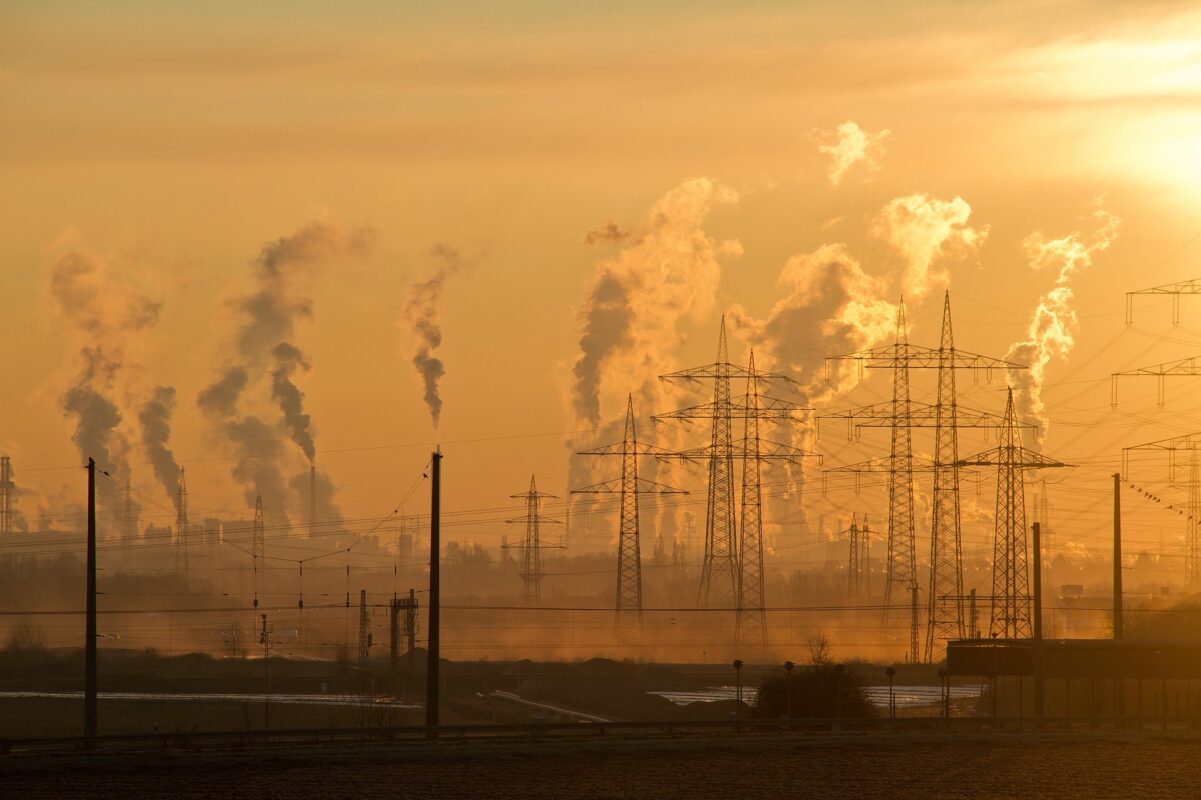
As individuals, as a collective, we cannot of course divorce ourselves from its failings and it is here we have power to influence the debate.
If we consume just a little less, if choose environmentally friendly and ethically sourced products, the current economic paradigm (because it is a fairly dull beast) would have no other choice but to acquiesce.
And a green future needn’t be so much different, of course it would be, but there really is enough if shared.
OK lets face the elephant in the room…what if we fail? (…brave question!).
Epilogue
Well, we exist within a fairly narrow range of conditions, a little too much either way and humanity would fail and whilst we think much of ourselves, (and rightly so in many regards), truth be we are not nearly as important as we think.
Consider…we are not necessary and bring absolutely nothing to a universe so unimaginably vast, all of which was existed before us and may long after.
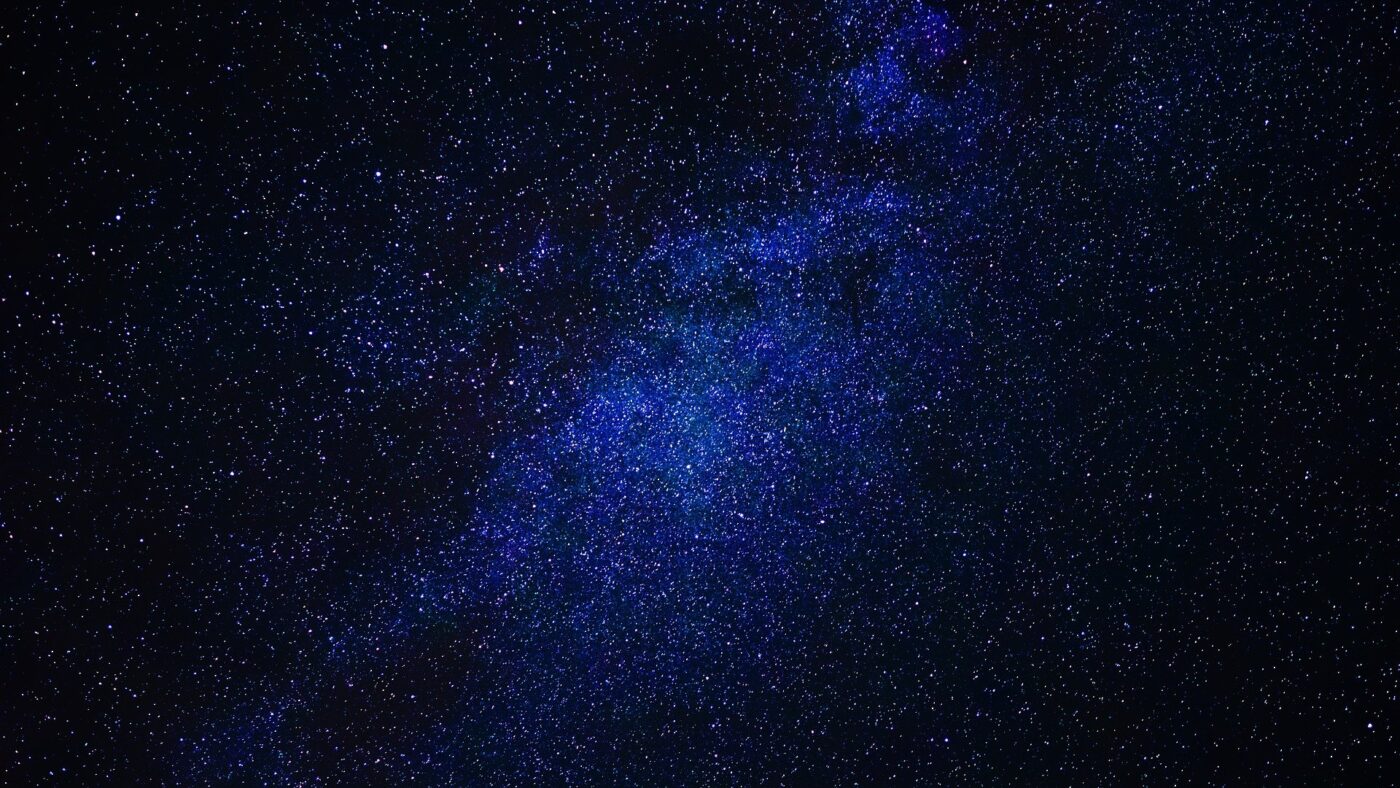
This is species extinction and species extinction is woven into the very existence of life.
99% of the four billion species that have evolved on Earth are now gone and it is at least conceivable we will join the 99% of earths other extinct species as the planet restores itself to balance.
It appears life is granted as grace not a right for there is such an abundance of masculine and feminine energy in the universe our passing simply would not register.
However there is climate change hope which we develop in part II and begin here.
Conclusion
Robin Bell a polar scientist at Columbia University’s Lamont-Doherty Earth Observatory states, ‘The real question is: Is there the social will to act? And it appears that the social will is emerging. We really are starting to have serious conversations. People from the individual scale to the government scale are taking action, and that’s what needs to happen.’
She continues, ‘If you look at polling data, young people by a huge margin understand the climate issue. And it cuts across ideology, cuts across everything. It you’re under 30, you know, there’s a climate crisis.’
This implies: successive leaders, policy makers, entrepreneurs and captains of industry, will have a significantly deeper appreciation of climate change and the planet, enough perhaps, to avert impending climate disaster.
fin
We want to hear from you on the issue of greenhouse gases and climate change. What have you seen from where you are?
Let’s start a conversation, comment below.
Check out our blog on Goal Setting and don’t forget to download our free habit tracker to start and help keep you on track of your re-cycling goals.
Use this link to let us know your general thoughts via our contact page.
And be part of the wider PQS community and like, comment, share and follow, us on Facebook and IG.
Email: parentsquietlysucceeding@gmail.com

Reference
The World in Data
The National Geographic
People for the Ethnical Treatment of Animals
NASA: Climate Change and Global Warming
Beth Porter: Reduce, Reuse, Reimagine: Sorting Out The Recycling System.
Earth.org
Intergovernmental Panel on Climate Change 6th Assessment Report.

